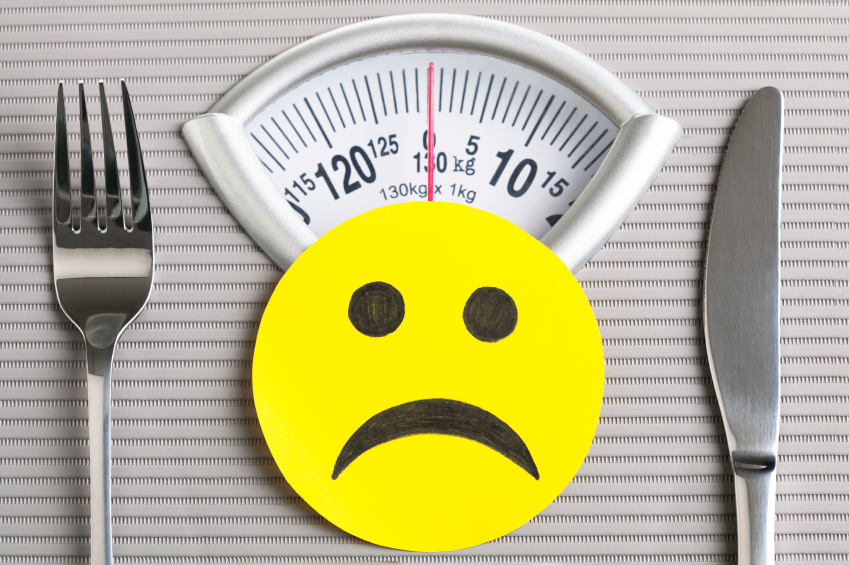6 worst weight-loss mistakes
You’ve cleared your cupboards of junk food, swapped cake for carrot sticks and joined the local gym, but you’re still not losing weight! Here are six dieting blunders that may be jeopardising your success …

Overcompensating for workouts
While regular exercise is a great way to stay healthy and boost your mood, research has shown that many people actually gain weight when they start an exercise regime, which may be because they increase their calorie intake to fuel or reward their workouts.
As we often overestimate the number of calories we have burned off through exercise, treating yourself after a workout can not only undo all your hard work, you may even be taking in more than you have actually worked off, leading to weight gain. Try combining your workout routines with dietary changes for your best chance at weight-loss success.
Choosing the wrong drinks
Although we all know eating less can help us to lose weight, many dieters fail to take into account what they are drinking. While alcohol is notoriously high in calories, fruit juice, ‘healthy’ smoothies, soft drinks and hot drinks can also pack a calorie punch, and even diet drinks are less than saintly.
Research by the Texas Health Science Center at San Antonio found that people who consumed diet drinks on a daily basis experienced a 70 per cent greater increase in waist circumference than those who drank none, while a previous study has shown that the more diet drinks you consume, the higher the risk of obesity – a staggering 41 per cent for one can a day! Experts believe this may be because artificial sweeteners can trigger appetite and inhibit the brain cells that make you feel full, causing you to eat more.
Not getting enough sleep
Many early bird or late night exercisers are happy to sacrifice an hour in bed to squeeze in their workouts, but not getting enough shut-eye could actually reduce the effects of exercise and lead to weight gain.
Research has shown that sleep deprivation can drastically affect exercise performance and endurance, meaning that you burn fewer calories per workout, while it also slows down your metabolism, increases appetite and makes you more likely to give in to your cravings. Lack of sleep also leads to an increase in cortisol – the stress hormone – this can contribute to weight gain, especially around the middle.
Eating large portions
Portion sizes have grown massively over the last few decades, meaning that a meal you order in a restaurant or serve up at home could actually be the amount of two or three standard serving sizes – so rather than eating three meals a day, you could be eating the equivalent of six!
If you’re eating healthily and still not losing weight, it may be worth looking at your portion sizes. Pay attention to the number of servings listed on food labels, measure out servings or use smaller plates to help keep your portions in check.
Being too restrictive
While overly large portions can lead to weight gain, eating too little can also make it surprisingly difficult to lose weight by causing your body to go into starvation mode, causing the metabolism to slow down and the body to hold on to fat and calories.
Cutting out all your favourite foods and having an ‘all-or-nothing’ approach to dieting can also mean you are more likely to give in and abandon your diet when the going gets tough. If you’re struggling with temptation – or considering giving your diet up after a wobble or minor lapse – remember you’re allowed the occasional treat. Many experts advocate the 80:20 rule as a realistic and sustainable route to weight loss – meaning you eat healthily 80 per cent of the time and treat yourself to the foods you’re craving for the other 20 per cent.
Cutting out fats
‘Low fat’ has become synonymous with ‘healthy’ or ‘diet friendly’ for many of us, however good monounsaturated fats (found in avocados, olive oil and nuts) are actually very healthy and, according to research, can actually help to promote weight loss.
Furthermore, while ‘reduced-fat’ products may seem healthy, they are often packed with sugar to compensate for the change in taste and texture. The added sugar causes levels of insulin – our fat-storing hormone – to be released in the body, which can lead to weight gain and other health problems.

Leave a Reply
Please login or register to leave a comment.